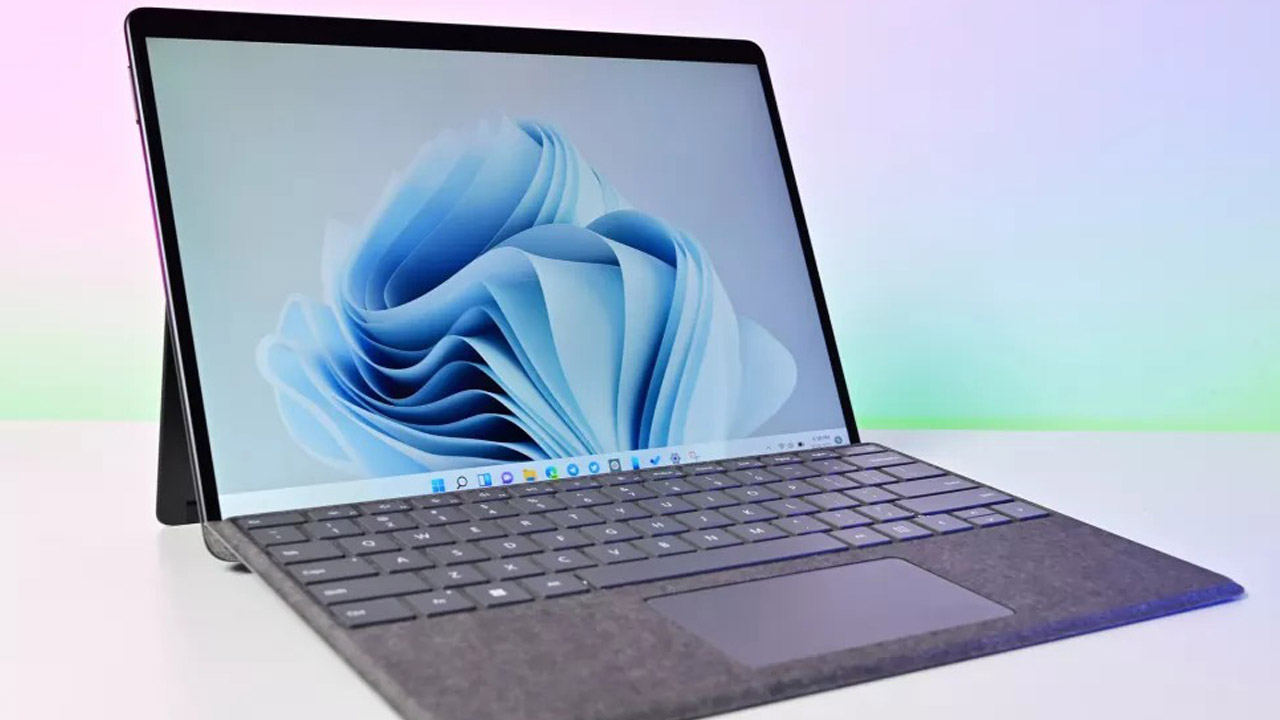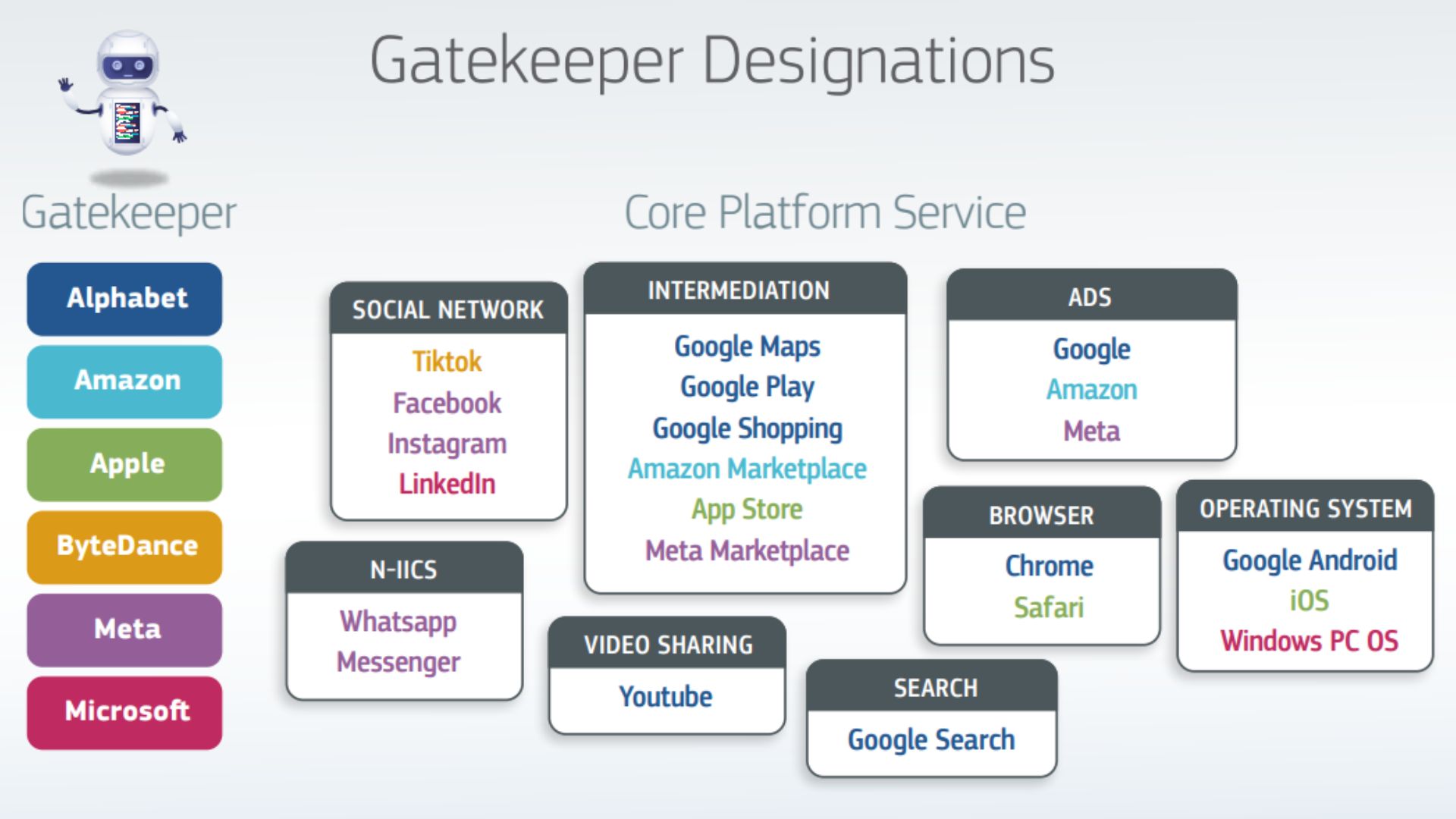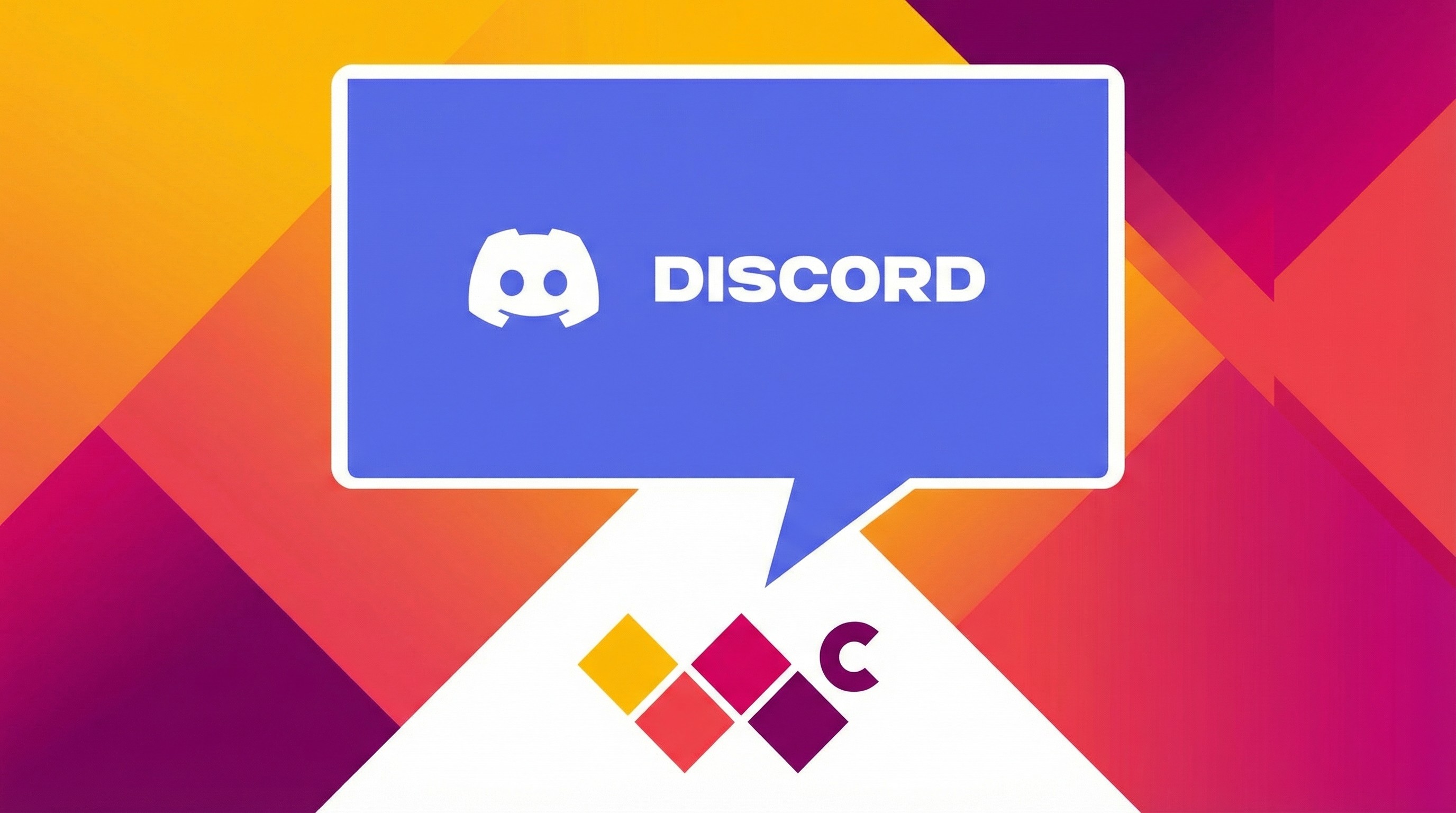Microsoft added to EU gatekeeper list, but Bing and Edge are under investigation
22 core platform services from Alphabet, Amazon, Apple, ByteDance, Meta, and Microsoft will be impacted by the EU's decision.

All the latest news, reviews, and guides for Windows and Xbox diehards.
You are now subscribed
Your newsletter sign-up was successful
What you need to know
- The EU Commission has listed six companies as designated gatekeepers under the new Digital Markets Act, including Alphabet, Amazon, Apple, ByteDance, Meta, and Microsoft.
- A total of 22 core platform services provided by the six gatekeepers, including Meta's Facebook and Instagram, Microsoft's employment-focused social network platform, LinkedIn, and more, will be affected.
- Despite meeting the set thresholds, Gmail, Outlook.com, and Samsung Internet Browser didn't qualify as gateways following compelling submissions by their parent companies.
- The six gatekeepers have six months to comply with the DMA's rules.
- The EU has opened four market investigations looking into Bing, Edge, Microsoft Advertising, and Apple's iMessage, citing that despite meeting the set thresholds, some of these core services don't qualify as gateways.
We recently reported on Microsoft and Apple being on the fence about their services, Bing and iMessage being in the spotlight, and potentially being incorporated into the EU's gatekeeper list under the EU’s new Digital Markets Act.
Both entities argued that their services weren't big enough to be considered gatekeepers, further citing that their services didn't meet the set threshold. However, the EU's gatekeepers list has since been released, listing Alphabet, Amazon, Apple, ByteDance, Meta, and Microsoft.
As outlined by the EU Commission under the DMA, which has been in effect since November 2022, a gatekeeper is essentially an online platform that provides an important gateway between business users and consumers. As such, it can leverage its position in the digital space to create a bottleneck.
The DMA is in place to prevent gatekeepers from imposing unfair practices on businesses and end users while simultaneously "ensuring the openness of important digital services." As such, the legislation will require gatekeepers to share data, link to competitors, and ensure their services are interoperable.
The move will affect 22 core platform services provided by gatekeepers, including Meta's Facebook and Instagram, Microsoft's employment-focused social network platform, LinkedIn, Windows OS, WhatsApp, YouTube, and more, as shown below.

The European Commission, under the Digital Markets Act, has a mandate to designate digital platforms as gatekeepers if services provide "an important gateway between businesses and consumers in relation to core platform services."
This includes platforms with an annual turnover exceeding €7.5bn, a market cap above €75bn, and 45 million active monthly users. The designation of the six gatekeepers comes after a 45-day review process by the Commission. The Commission had issued a notification to the parties affected prior to the review process and now designation.
All the latest news, reviews, and guides for Windows and Xbox diehards.
In the press release, the Commission also indicated that it has opened four market investigations looking into Microsoft's and Apple's submissions, citing that despite some of the core platform services meeting the set thresholds, they still don't qualify as gatekeepers. This includes Microsoft's Bing, Edge, Microsoft Advertising, and Apple's iMessage.
The investigation is in place to determine whether these submissions hold water. Notably, the investigations run for a maximum of 5 months. Likewise, the Commission has launched another market investigation to determine whether Apple's iPadOS should be considered a gatekeeper. This is despite the platform not meeting the set thresholds. For this case, the investigation could run up to 12 months.
While Gmail, Outlook.com, and Samsung Internet Browser met the set thresholds to be designated gatekeepers, Alphabet, Microsoft, and Samsung came up with submissions that exempted their services from qualifying as gateways.
The Digital Markets Act will help creating a level-playing field for all companies competing in the European digital market, as it will bring about more contestability and openness in markets. Today, we identified the first six gatekeepers that must respect the new rules set forth by the DMA
EU Commissioner Didier Reynders
Following the designation, the gatekeepers will have up to six months to comply with the Digital Markets Act's rules. This means that the companies listed have up to March 2024 to comply. In turn, end users and businesses will now have "more choice and more freedom" over the gatekeeper's services.
The EU in the press release outlines the timeline companies will be under:
"Some of the obligations will start applying as of designation, for example, the obligation to inform the Commission of any intended concentration. It is for the designated companies to ensure and demonstrate effective compliance. To this end, they have 6 months to submit a detailed compliance report in which they outline how they comply with each of the obligations of the DMA."
Failure to comply with the regulations, the Commission can impose hefty fines of up to 10% of the company's worldwide turnover. If the company fails to comply again, the commission can raise the fine to 20%.

Kevin Okemwa is a seasoned tech journalist based in Nairobi, Kenya with lots of experience covering the latest trends and developments in the industry at Windows Central. With a passion for innovation and a keen eye for detail, he has written for leading publications such as OnMSFT, MakeUseOf, and Windows Report, providing insightful analysis and breaking news on everything revolving around the Microsoft ecosystem. While AFK and not busy following the ever-emerging trends in tech, you can find him exploring the world or listening to music.
